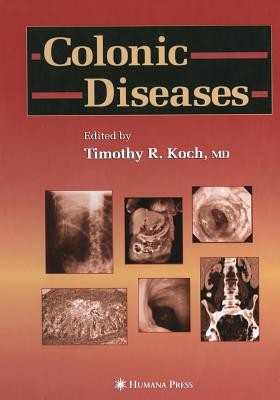
- We will send in 10–14 business days.
- Publisher: Humana
- Year: 2012
- Pages: 556
- ISBN-10: 1468497405
- ISBN-13: 9781468497403
- Format: 17.8 x 25.4 x 3 cm, softcover
- Language: English
- SAVE -10% with code: EXTRA
Colonic Diseases (e-book) (used book) | bookbook.eu
Reviews
Description
The Scientification of Gastroenterology During the 20th Century * Science contributes to medicine in three ways: It provides a body of relatively secure knowl- edge. Some of that knowledge has been applied to develop technologies which have had a major impact upon the practice and effectiveness of medicine. Last, science offers to medicine a way of thinking. - 1. McCormick [(1993) The Contribution of Science to Medicine. Perspect. Bioi. Med. 16,315.] Awareness of the digestive system began with the dawn of civilization, when man, observing the feeding habits of animals in the surrounding environment, experimented with foods, edible and inedible. Identity came with discoveries of the digestive organs during the 16th and 17th centuries. Function was revealed by physiologic studies of digestion, absorp- tion and secretion, metabolism, and motility during the 18th and 19th centuries. Diagnostic access improved with the technological advances of the 20th century. Understanding of gas- trointestinal (GI) disease followed the growth of the basic sciences and gastroenterology's involvement in scientific research during the latter half of the 20th century. Early in the 20th century, gastroenterology was yet an undefined activity without clinical or scientific guidelines. Diagnostic approach to the digestive tract was minimal. Valid con- cepts of disease were lacking. Visceroptosis, sitophobia, and "colonic autointoxication" were common "diagnoses." Therapeutic resources were scarce.
EXTRA 10 % discount with code: EXTRA
The promotion ends in 15d.06:52:11
The discount code is valid when purchasing from 10 €. Discounts do not stack.
- Publisher: Humana
- Year: 2012
- Pages: 556
- ISBN-10: 1468497405
- ISBN-13: 9781468497403
- Format: 17.8 x 25.4 x 3 cm, softcover
- Language: English English
The Scientification of Gastroenterology During the 20th Century * Science contributes to medicine in three ways: It provides a body of relatively secure knowl- edge. Some of that knowledge has been applied to develop technologies which have had a major impact upon the practice and effectiveness of medicine. Last, science offers to medicine a way of thinking. - 1. McCormick [(1993) The Contribution of Science to Medicine. Perspect. Bioi. Med. 16,315.] Awareness of the digestive system began with the dawn of civilization, when man, observing the feeding habits of animals in the surrounding environment, experimented with foods, edible and inedible. Identity came with discoveries of the digestive organs during the 16th and 17th centuries. Function was revealed by physiologic studies of digestion, absorp- tion and secretion, metabolism, and motility during the 18th and 19th centuries. Diagnostic access improved with the technological advances of the 20th century. Understanding of gas- trointestinal (GI) disease followed the growth of the basic sciences and gastroenterology's involvement in scientific research during the latter half of the 20th century. Early in the 20th century, gastroenterology was yet an undefined activity without clinical or scientific guidelines. Diagnostic approach to the digestive tract was minimal. Valid con- cepts of disease were lacking. Visceroptosis, sitophobia, and "colonic autointoxication" were common "diagnoses." Therapeutic resources were scarce.


Reviews